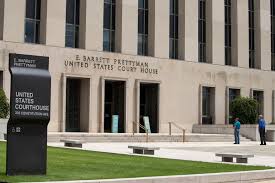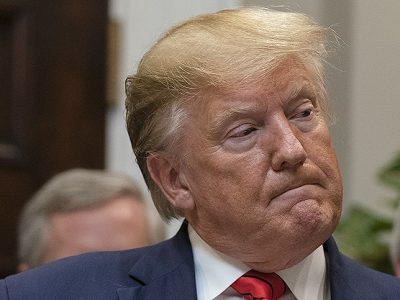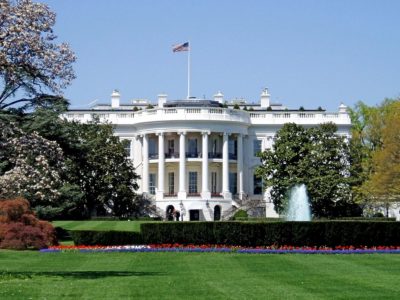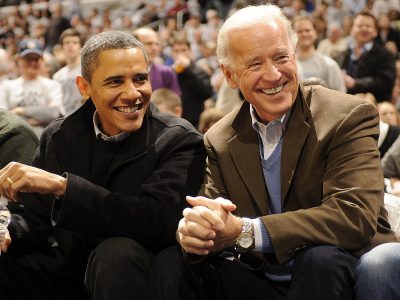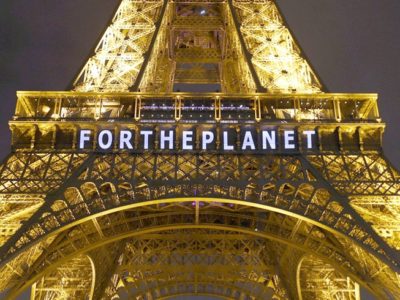A Big Win for Climate Regulation
The DC Circuit overturns Trump's effort to hamstring regulation of carbon from power plants.
The D.C. Circuit issued an opinion today knocking out Trump's Affordable Clean Energy rule. The Trump rule was a rollback of Obama's keystone climate initiative, the Clean Power Plan. The majority opinion plus dissent take up 185 pages, and I won't try to describe it all here. Briefly, here's what the appeals court ruled and why it matters. The underlying issue was what kind of restrictions EPA could place on carbon emissions from existing power plants. Both r...
CONTINUE READINGTrump’s Pro-Environmental Acts — A VERY Short List
Despite its general hatred of environmental protection, the Trump Administration did manage a few positive steps.
This being the last day of Trump's presidency, it's appropriate to look back on his environmental record. Basically, Trump was to environmental law as General Sherman was to Georgia. In the time between his "American carnage" Inaugural Address to his unleashing of carnage on Capitol Hill, he and his minions devoted themselves to environmental destruction. Even so, there were a few occasions where the Administration backed actions to protect the environment — s...
CONTINUE READINGStrategies to Reverse Federal Environmental Rollbacks
Last month, CLEE released a website that compiled over 180 Trump Administration environmental policy rollbacks, from the repeal of the Clean Power Plan to the removal of government climate change websites. We tracked and evaluated these rollbacks based on their environmental, climate, public health, and programmatic impacts; identified the pathway and difficulty of reversal; and highlighted “Day Two” actions that can be immediately reversed by the new administration....
CONTINUE READINGClimate Change, Big Energy & The U.S. Supreme Court–What Could Possibly Go Wrong?
BP v. Baltimore Is First Environmental Case To Come Before Newly-Reconstituted High Court
On Tuesday, the U.S. Supreme Court will hear oral arguments in its first environmental case of the 2020-21 Term. That case, BP PLC v. Mayor and City Council of Baltimore, involves an important, nationwide climate change litigation trend, and will provide the first indication of the post-Ginsburg Court's attitude towards environmental law and litigation generally. The Baltimore case is part of a nationwide initiative of 19 separate lawsuits brought by numerou...
CONTINUE READINGHow Cities Can Use California’s Housing Element to Get New Housing Built
New changes in state law allow local governments to commit to long-term production of housing
Over the next two years, cities across the state of California will undertake a state-mandated process to update the “housing element” of their general plans for land use. Cities must demonstrate that they have—or will provide—adequate zoned capacity to accommodate their share of “regional housing need,” a figure which is determined by the state Department of Housing and Community Development (HCD) and regional Councils of Governments. Defenders of this pr...
CONTINUE READINGRethinking Presidential Administration
Giving the President more control of regulation has been a good thing — up to a point.
Conservatives love to complain about faceless bureaucrats, but blaming bureaucrats for regulations is hopelessly out of date. When Elena Kagan was a professor, she wrote an article called “Presidential Administration.” The article applauded her former boss Bill Clinton for seizing greater control of the regulatory process away from agencies. That trend has accelerated to the point where the White House controls even the fine details of regulation. Two things c...
CONTINUE READINGToday Versus 2008
Despite Trump’s efforts, he couldn’t actually reset the clock to the pre-Obama era.
Obama moved us forward. Trump moved us backwards. Are we back where we began? No. Biden starts from a significantly stronger position than Obama did in 2008. In 2008, like today, the outgoing Republican President had adamantly opposed climate action, favored the oil and gas industry, and turned a cold shoulder toward environmental regulation. Trump tried to wipe away all the progress that Obama made since 2008. Nevertheless, Biden starts out with some big advantages...
CONTINUE READINGAgriculture As A Climate Solution
New CLEE / Berkeley Food Institute report on how to promote regenerative agriculture
The climate fight should ultimately benefit all communities, just as they are all part of the solution. Agricultural communities are no exception. Farmers and ranchers can implement climate-friendly techniques that both sequester carbon and boost profits and long-term sustainability (sometimes referred to as “regenerative agriculture”). Examples of these practices include crop diversification and rotation, cover cropping, low-to-no tillage, rangeland and cropland co...
CONTINUE READINGNext Steps to Save the Global Environment
A lot will need to be done to undo Trump’s harm to global cooperation. Here’s a start.
Trump’s hostility domestic environmental regulation is notorious. He also stalled or backpedaled on the international front. Here are seven steps that President Biden could take to remedy the situation. Rejoin the Paris Agreement. The U.S. needs to immediately rejoin the Paris Agreement. It also needs to update its climate target, because we can do a lot more than we thought possible even four years ago to reduce emissions. Technology has improved, ren...
CONTINUE READINGThe Georgia Elections, the Republican Schism, and the Environment
The prospects for a green stimulus bill have improved
Although the word is overused, last week really did see a seismic shift in the political world. Actually, there were two earthquakes — the victories of Democrats Warnock and Ossoff in Georgia, and the violent invasion of the U.S. capitol incited by Trump. While the significance of these events is much broader, their relevance to environmental and energy issues should not be overlooked. Basically, Biden’s hand in Congress has just gotten stronger, and a green stim...
CONTINUE READING



